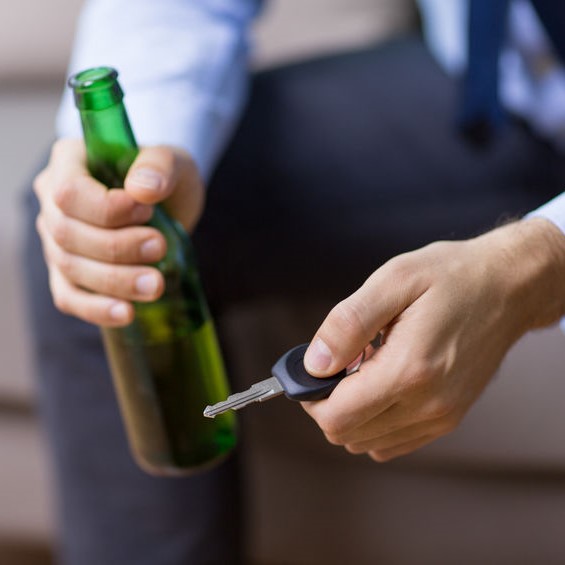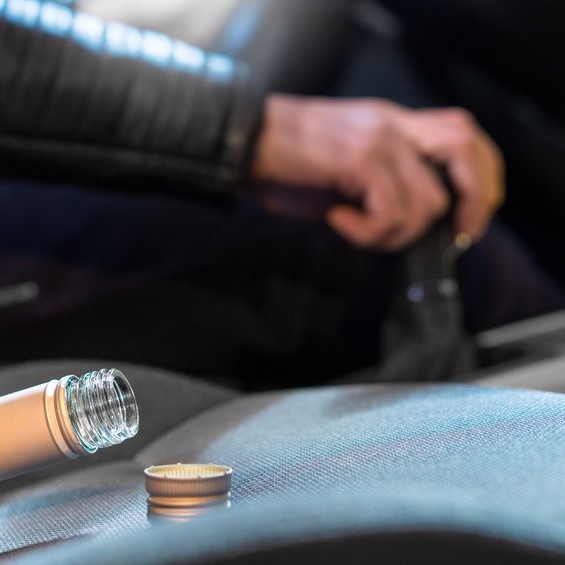
What is the best way to avoid getting charged with a DUI?
DUI is not something that anybody should want, and you certainly don’t want your insurance company to know about it. DUI = Driving Under Influence of either alcohol or drugs. A DUI means you were drinking, or have behavior affecting drugs, in your system and chose to get behind the wheel of a vehicle and drive. At the point you’re a pulled over law enforcement is an indicator you shouldn’t have made that decision.
Now, you’re faced with DUI charges which can bring about a lot of other issues. You’re going to have a criminal record. You’re going to be out a lot of money, you could possibly lose your job, (which won’t help with the money you’re going to need.), and a possibility of so much more negative things are on the horizon.
The first thing that may come to mind would be “Don’t drive and drink”, but there are other things that we’ll share with you on how to avoid getting arrested for DUI or DWI. Either of these will be devastating to your life as you know it today. Not only are you going to have a criminal record and could lose your job and your reputation, among other things, you put other’s lives at risk. Here are ten tips on ways to avoid getting charged with a DUI.
- A Designated Driver: If you’re planning on drinking, predetermine a designated driver. This is a person with a valid driver’s license and will not be drinking alcohol. The designated driver should have the address of every person in the group that will be drinking along with their emergency contact information.
- Take Public Transportation: What if you can’t or don’t have a designated driver? Do your drinking where the is public transportation. Take a bus, cap, taxi, or train. During holidays, there are organizations that offer free pick up service when people are going to be out drinking. As the bartender to help you arrange transportation, some will offer this service in order to help people from irresponsible driving and getting a DUI or DWI.
- Stay in a Hotel: Some holidays or special events, like New Year’s Eve, when you know that you’re going to be drinking and partying, book a hotel room ahead of time. Sleep it off and have a free continental breakfast the next morning.
- Take Their Keys: If you’re in the presence of somebody that is heavily drinking, take their car keys. If you’re the one drinking, before you get too intoxicated, hand your key’s over to somebody that won’t let you drive.
- Alternate Drinks: A responsible party host will have non-alcoholic beverages to offer their guest. If you’re the host, in addition to alcoholic beverages, have coffee, fruit juice, sodas, teas, and water to offer. When a party is winding down, start offering the guests other beverages to help combat the alcohol they consumed. This can help them avoid a DUI or DWI.
- Food: Another thing that responsible hosts will have available is plenty of food. This doesn’t have to be a sit-down meal, but plenty of finger sandwiches and other snack foods. When we eat while drinking, the food will absorb some of the alcohol consumed and can often be what keeps a person from getting a DUI when they leave.
- Cut the Alcohol Off Early: Sometimes being the responsible host isn’t the fun host. This means as the night starts ending, remove the keg and put the alcohol away. By doing this, you can be sure that your guests have had some time to sober up before they attempt to drive and risk a DUI or DWI.
- Mingle with Guests: Any hosts know they should mingle with all their guests, but this needs to be done not only socially but under a watchful eye. When you notice that somebody is consuming a lot of alcohol, you don’t want to let them leave drunk. Offer them non-alcoholic beverages, food, alternate transportation, or a place they can sleep it off.
- Call Family or Friend: If you have a guest that has to consume a lot of alcohol and is at risk of driving and getting a DUI, offer to call a family member or friend to come to pick them up.
- Early Start: Don’t wait until the party is hours in progress to start watching your guests, especially guests that have arrived early and started drinking, or may have already been drinking when they arrived.
As a party goer or a host, you should take any necessary precautions that will protect you and others from getting a DUI or DWI.
What usually happens when you get your first DUI?
More states are taking a serious approach when responding to a DUI or DWI, even a first DUI. There isn’t a first offender act for a DUI conviction, meaning that the DUI charge will not be expunged from your record, leaving you with a criminal record. There is not any diversion offered or any possibility of withholding judgment.
Your driver’s license is confiscated and surrendered to the DPS, taking away your legal right to drive for a period of time. The arresting office can petition for the state to suspend your driver’s license when your blood alcohol is at a certain limit or if you refuse to be tested.
Other factors you could face with a DUI is twenty-four hours or longer behind bars, a probation period, required community service, a fine between $300 up to $1,000 or more depending on what the judge rules, and possibly required to attend an alcohol and drunk driving education program. The judge may place you on a one year probation with the possibility of being jailed if you repeat the offense during that year.
Are there different types of DUI?
The State of Georgia has six categories of DUI charges, two of which are DUI based with the other four having a focus on DUI from other substances. The six categories of DUI charges are:
- Per Se: Under the laws of Georgia, a DUI-Per se statute, operating a motor vehicle with .08 gram blood-alcohol level is illegal and evidence of impairment is not required.
- Less Safe: This DUI is not as well-known as the above, and blood alcohol level is not required for evidence. Meaning that law enforcement can arrest a person they believe is not capable of operating a motor vehicle safely.
- Drugs: This DUI charge is for a person that is thought to be under the influence of drugs and the law enforcement agent feels they cannot operate a motor vehicle safely. This can be an illegal drug or a prescription drug.
- Inhalants: This DUI is when a law enforcement agent believes a person has intentionally inhaled any aerosol, glue, or other toxic vapor that has put them at a risk of operating a motor vehicle.
- Multiple Substances: This DUI charge is for any person that law enforcement determines them under the influence of several products simultaneously such as alcohol, drugs, and/or inhalants, making it unsafe to allow them to operate a motor vehicle.
- Marijuana or Other Controlled Substance: This DUI charges is when law enforcement finds a person to be under the influence of a controlled substance such as marijuana while operating a vehicle. If a person is licensed to legally use the controlled substance, i.e. medical marijuana, could result in being charged with Per Se or a Less Safe as described above.
How can I avoid a DUI when pulled over?
Those flashing blue and red lights are pretty when they aren’t behind you, but when they are, keep calm and follow these tips. They are not a guarantee you won’t get arrested for DUI, but it could minimize the chance of it happening.
- DUI checkpoints Many cities have the standard spots they set these up. If you’re planning on drinking and driving, but please don’t, avoid these areas.
- Pull Over: Don’t’ keep driving like you don’t see the lights and don’t start driving faster, trying to “lose” the officer.
- Have Your Papers: Before the officer approaches your vehicle, have your driver’s license and proof of insurance readily available. Fumbling and searching for these could quickly lead to a DUI.
- Keep Passengers Calm: Advise any passenger to remain calm and keep quiet unless the officer speaks directly to them, then only offer a short answer.
- Be Polite: Being polite to a law enforcement officer is always smart. Their job is tough enough without having to handle inappropriate conduct or making statements that can come back to you. Remember, there are body cams and dash cams now, watching everything that is happening.
- Speak Carefully and Little: Your speech could be what gives you away as being impaired. Say as little as possible but answer questions without hesitation.
- Decline Field Sobriety: Decline any field sobriety test, even if you are sober. If you have the slightest indication of failure, it can be used against you.
- A Chemical Test: Any consumption of alcohol, prescription or non-prescription drug can show up on a chemical test of blood, breath, or urine. If you have consumed any of those, refuse a chemical test. The slightest amount, even prescription drugs can get you a DUI or DWI.
- Request a Lawyer: At any point of time when you’ve been pulled over, you have the right to speak with your lawyer. Once you have made that request, do not answer any more questions, do not make any statements, and refuse any further testing.
Can cops search your car after a DUI?
Yes and now. If you are pulled over for a minor traffic offense, a headlight or taillight is out, you didn’t make a complete stop, etc., the officer probably won’t search your vehicle if they don’t feel there is a reason – BUT – just as an employer can always find a reason to fire a person, an officer can find a reason to search your vehicle without a warrant. This is called a “probable cause” and could be for any of the following or others:
- They asked and you agreed, meaning you waive your Fourth Amendment rights.
- You have bloodshot eyes, smell of alcohol or marijuana, or see alcohol containers in your vehicle.
- They think you have a weapon.

Is a dui is a misdemeanor or felony?
In the State of Georgia, A DUI charge is usually a misdemeanor offense, but depending on surround circumstances, a DUI charge can become a felony offense. Situations that make a DUI a felony charge would be repeat offender, child endangerment, serious injury to self or others, vehicle homicide, or vehicle feticide, or interfering with traffic device.
Is dui or dwi worse or are they the same? A DWI is typically the more severe of the two because it indicates there is a higher level of alcohol or drug evident. A DWI will have tougher penalties than a DUI, however, a first-time offender with a good legal representation can get a DWI reduced to a DUI. Still, both are serious charges and have last implications that will follow you for life. Call 706-353-6467 today for your bail needs.
